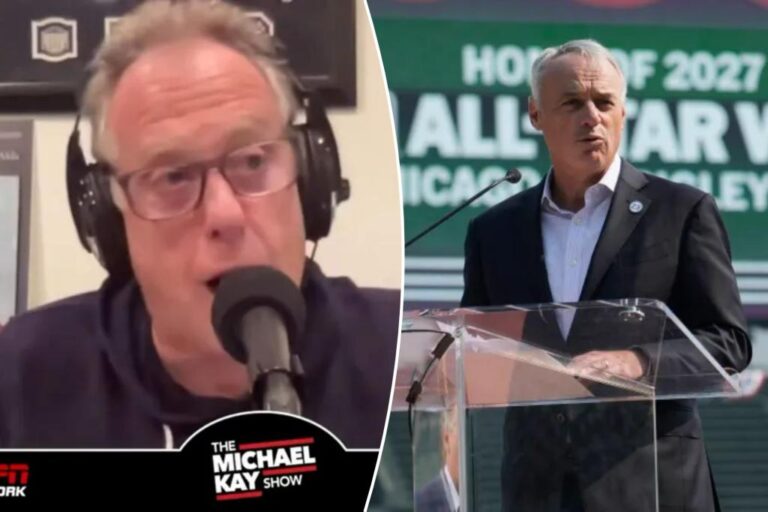Yankees Broadcaster Michael Kay Discusses MLB Realignment: A New Frontier for Baseball
The prospect of MLB realignment is generating considerable buzz in the baseball community, igniting varied opinions among fans and analysts alike. Yankees broadcaster Michael Kay recently shared his insights on the topic, hinting at possibilities that could reshape America’s pastime.
Understanding MLB Realignment
During the Little League Classic broadcast on ESPN, MLB Commissioner Rob Manfred introduced the idea of geographic realignment and its connection to potential expansion. This announcement ignited discussions across the sport, prompting passionate reactions from fans. Some are skeptical, fearing that decades-old traditions—specifically the separation of the American and National Leagues—might be upended.
Key Points on Manfred’s Proposal:
- Geographic Focus: Realignment could bring teams closer, enhancing local rivalries.
- Index of Interest: New divisions could revive fan engagement in key events like the All-Star Game and the World Series.
Michael Kay’s Perspective
On a recent episode of his ESPN radio show, Kay expressed cautious optimism about the proposal. He stated, "This would be the biggest thing that Rob Manfred does other than if he can get a salary cap at the next collective bargaining agreement. The sport that your kids are going to grow up watching, like my son Charlie, is going to be completely different from the one I grew up with."
Points Highlighted by Kay:
- Rivalries Reimagined: Kay argues that if teams like the Yankees and Mets were in the same division, the need for interleague play could decrease, intensifying matchups that fans are eager to witness.
- Revitalizing Tradition: Kay believes that eliminating interleague play could restore significance to classic events, like the World Series, making them feel more exclusive.
Would Realignment Benefit MLB?
Kay posits that adjusting the current structure might make the league more appealing to younger fans:
- Increased Engagement: The thrill of facing once-rare opponents could rekindle excitement around marquee matchups.
- Rethinking Events: "Maybe if you did that, the All-Star Game would mean something again. And more importantly, the World Series would mean something," Kay added.
Diverse Reactions from the Baseball Community
While Kay is open to the change, others like Mets broadcaster Howie Rose and former MLB player Cameron Maybin have voiced their reluctance, underscoring the divide in opinion.
- Concern over Tradition: Many fans and analysts feel attached to the historical structure of the leagues and are apprehensive about major changes.
Next Steps and Considerations
While Manfred’s comments can be seen as a step toward modernization, specific details about how realignment would work remain vague. It’s suggested that any changes would likely be geographical.
Expansion: A Potential Starting Point
- The league is reportedly waiting for the stadium situations of the Oakland Athletics and Tampa Bay Rays to be resolved before proceeding with any expansions.
Conclusion
As baseball stands at a crossroads, the conversation around potential MLB realignment presents an exciting opportunity for both the league and its fans. While opinions vary widely, the potential to enhance the sport’s appeal cannot be overlooked.
For more information on MLB realignment and its implications, you can check out ESPN and MLB’s official site.
By embracing change, Major League Baseball could pave the way for a thrilling new chapter in its storied history.


